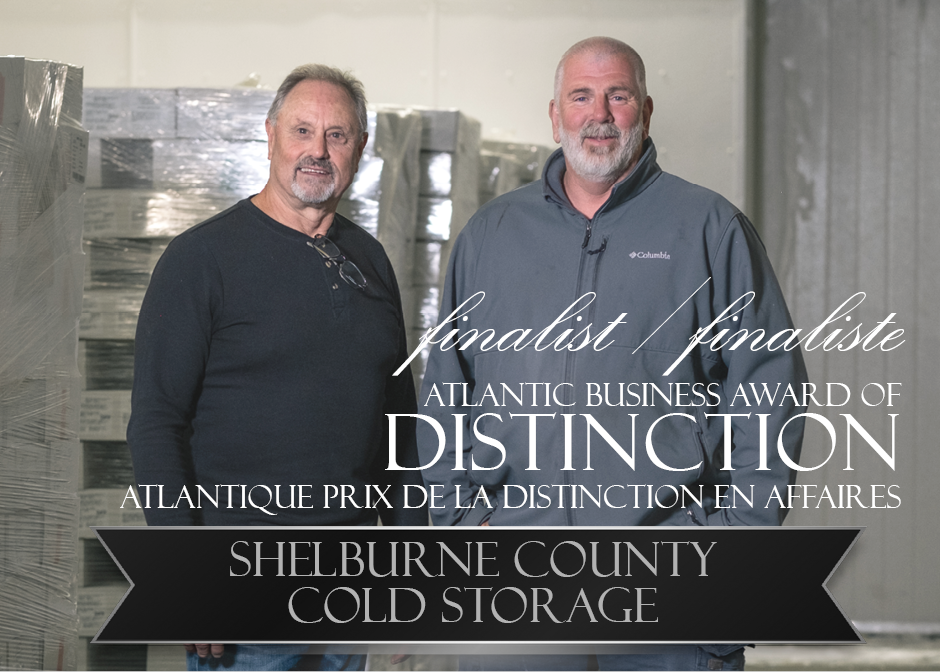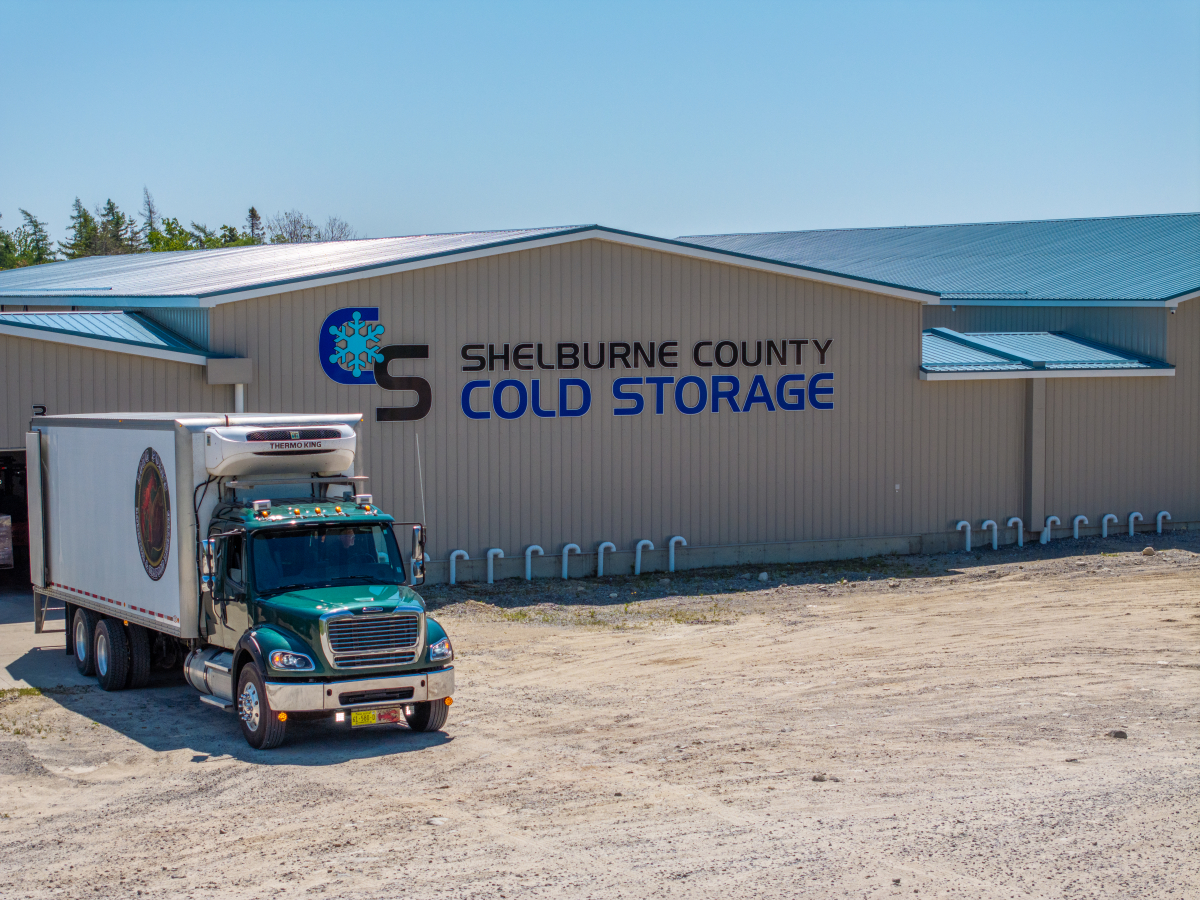
Shelburne County Cold Storage
FINALIST Atlantic Business Award of Distinction
Reeling in Support: Cold Storage Facility Listened to the Needs of the Community
While Nova Scotia was experiencing its worst wildfires in its history, Heidi Wagner, the Executive Director of CBDC Southwest in Shelburne County, kept calling Calvin Williams at Shelburne County Cold Storage.
"I was touching base with him each day,” she said. “To find out how things were going."
While embers landed on the roof, and the surrounding forest is still black, the fires luckily stopped short of the cold storage facility.
“It was scary,” she said. “They thought they were going to lose it.”
The constant contact is just one example of how the local Community Business Development Corporation is heavily invested in the success of the business. It has proven to be a great asset for the entire region.
Shelburne County includes what is considered Nova Scotia’s “lobster capital.” Until eight years ago, everyone involved in the huge fishing industry was limited to renting freezer space three hours away.
Brian O’Connor worked in refrigeration and had an idea.
"I got to know the individuals in the fishing industry, everything from fishermen to plant owners,” he said. “I knew there was a need for freezers. And I said, 'hey, I can do that.'”
Brian went to his friend of the last thirty plus years, Calvin Williams, who ran a service station in town, and had gotten into renting personal storage units.
“I knew Calvin would bring strength in certain areas that I wouldn't,” Brian said.
The idea was to help serve the lobster industry specifically, by providing a space to store bait. Local fishermen had started buying containers of bait that they could share all season. Or they would catch their own. The nearest location to store it was in Dartmouth, almost 3 hours away.
"If you want to put product in storage, you have to have prior knowledge up to 4 or 5 days,” said Calvin. “And in order to get it back, you also have to have it scheduled in 4 or 5 days."
So, Calvin and Brian thought they could build a better alternative by cutting down transportation time and providing the type of personalized service you get only when you deal with smaller owner/operators.
“We like to think we're very easy to work with,” Brian said. "We do everything we can to make it accommodating for them.”
They put their plans together, had a few fishermen commit to renting space, and then went to their local CBDC. They eventually gathered all the financing needed to open their facility.

“Things took off very quickly for them,” Heidi said. “They got the trust of the fishermen around.”
Calvin remembers young fishermen, whose boat broke down. It was late, the boat was full, and it needed to get back out. “We’ll be in Sunday at 2:30 p.m.,” Calvin told them. “Let’s do it.”
“The vessel can continue. It hasn’t lost the product. They didn’t have to reschedule. They called us, within an hour, and we were there.”
Identifying the need, being sympathetic to the industry, and being lightweight enough to accommodate extenuating circumstances, created a clear recipe for success.
"We didn't expect to fill the building within a few months,” Calvin said. “But we did."
“Within the first year we had filled our only freezer with two million pounds of product, and turned down 1.5 million pounds of product, and watched it go up the road,” Brian said.
The two were able to keep the money in the business and financed two expansions entirely on their own. Calvin and Brian were still focusing on storing bait, but with the added space, came added expenses.
“You've got 12 full months of payments, and power bills, and all of the taxes, and all the rest of the insurances, that you had to pretty much do in 8 months,” Calvin said.
Business was great during the start of the fishing season, but as it went on, the weight in the freezers reduced steadily, until the freezers were empty. The duo figured that being able to store food grade products would help them service a year-long demand.
One day, while in the grocery store, Calvin ran into a long-time client that was also on the board of directors at CBDC Shelburne. Local people, in the community, make up the volunteer boards of all CBDCs.“You didn’t come back,” Calvin remembers him saying. "I didn't realize that after a year and half I could come back and ask you for more money,” Calvin replied.
Calvin remembers being told that the board was surprised when they did not return. Everyone had seen the expansions happening. They wanted to continue to be involved.
By looking at the minutes, Heidi can see that when the board approved the original loan, they felt the business would be important. "They felt that this fishing community needed that service they were providing," she said. So, when Calvin and Brian were ready, they went back to their CBDC, years ahead of plan, and were approved for another loan.
"I've got nothing but good to say about them. We wouldn't be here without them right,” Calvin said. "It gives you a real feeling, like a safe haven, you know."
Aside from loans, Calvin has appreciated programs, tools, and accommodations available to see the business succeed. He remembers being offered the option to pause payments, to help get over the slow part of the year, in the early years of the business. He sees it as an example of the CBDCs willingness to work together, to understand the businesses they deal with, and the commitment to true lasting success for the community, not just being concerned with collecting loan payments.
"You’re a family, when you get into this,” Cal said. “There's strength in numbers, brother, right. You're not on an island. You can phone a friend.”
